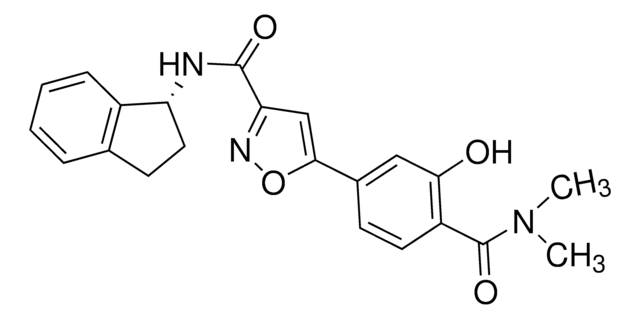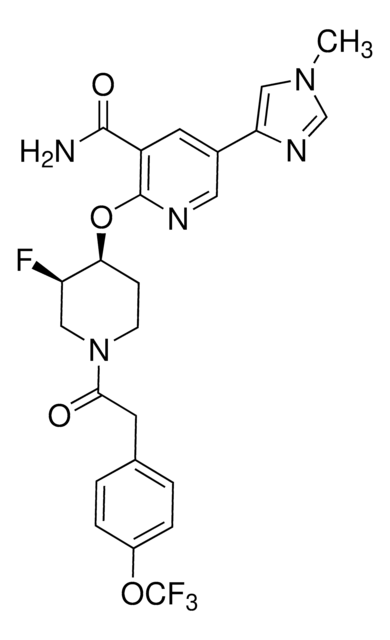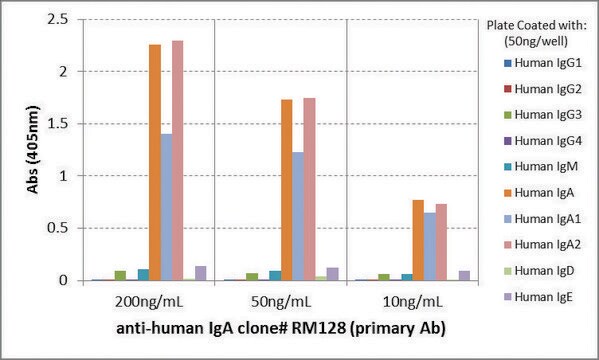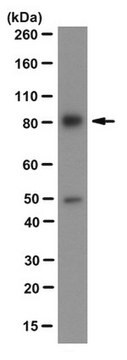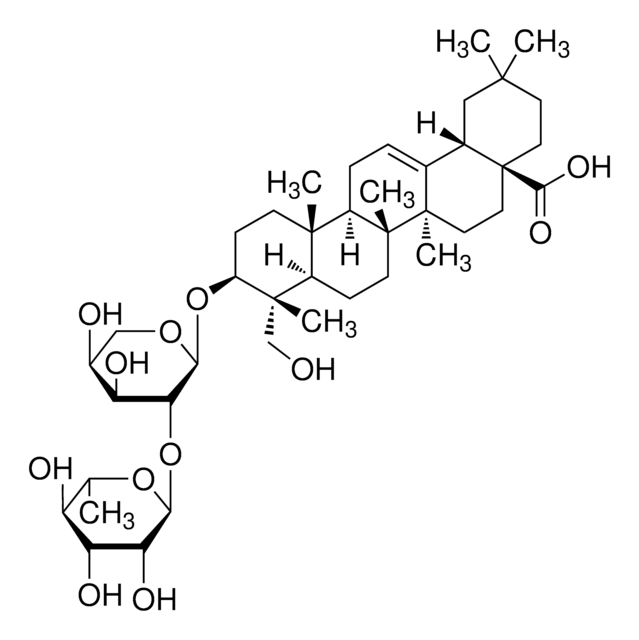B1059
Bcl-w (Minus C-Terminus) human
>95% (SDS-PAGE), recombinant, expressed in E. coli, buffered aqueous glycerol solution
Sign Into View Organizational & Contract Pricing
All Photos(1)
About This Item
Recommended Products
recombinant
expressed in E. coli
Quality Level
Assay
>95% (SDS-PAGE)
form
buffered aqueous glycerol solution
mol wt
18 kDa by SDS-PAGE
UniProt accession no.
shipped in
wet ice
storage temp.
−20°C
Gene Information
human ... BCL2L2(599)
General description
This recombinant Bcl-w lacks the mitochondrial targeting sequence but maintains the ability to neutralize pro-apoptotic Bcl-2 family members.
Biochem/physiol Actions
Like Bcl-2 and Bcl-x, the Bcl-w protein promotes cell survival, in contrast to other close homologues, Bax and Bak, which facilitate cell death. Bcl-w is an anti-apoptotic member of the Bcl-2 family that prevents release of cytochrome c from the mitochondrial intermembrane space into the cytosol. It is required for normal sperm maturation. Natural Bcl-w contains a C-terminal mitochondrial targeting sequence.
Physical form
Supplied as a 0.2 μm filtered solution in 25 mM HEPES, pH 7.5, 0.1 M KCl, and 10% glycerol.
Analysis Note
Measured by its ability to inhibit caspase-8-cleaved human BID-mediated release of cytochrome c from isolated mouse liver mitochondria using ELISA.
Storage Class Code
11 - Combustible Solids
WGK
WGK 3
Flash Point(F)
Not applicable
Flash Point(C)
Not applicable
Personal Protective Equipment
dust mask type N95 (US), Eyeshields, Gloves
Choose from one of the most recent versions:
Already Own This Product?
Find documentation for the products that you have recently purchased in the Document Library.
W Yan et al.
Molecular endocrinology (Baltimore, Md.), 14(5), 682-699 (2000-05-16)
Bcl-w, a prosurvival member of the Bcl-2 family, is essential for spermatogenesis. However, the mechanisms by which Bcl-w participates in the regulation of apoptosis in the testis are largely unknown. To explore the potential role of Bcl-w in the regulation
The proto-oncogene Bcl-2 and its role in regulating apoptosis.
G Kroemer
Nature medicine, 3(6), 614-620 (1997-06-01)
Sajid Khan et al.
Nature medicine, 25(12), 1938-1947 (2019-12-04)
B-cell lymphoma extra large (BCL-XL) is a well-validated cancer target. However, the on-target and dose-limiting thrombocytopenia limits the use of BCL-XL inhibitors, such as ABT263, as safe and effective anticancer agents. To reduce the toxicity of ABT263, we converted it
BCL-2 family members and the mitochondria in apoptosis.
A Gross et al.
Genes & development, 13(15), 1899-1911 (1999-08-13)
Yonghan He et al.
Nature communications, 11(1), 1996-1996 (2020-04-26)
Small molecules that selectively kill senescent cells (SCs), termed senolytics, have the potential to prevent and treat various age-related diseases and extend healthspan. The use of Bcl-xl inhibitors as senolytics is largely limited by their on-target and dose-limiting platelet toxicity.
Our team of scientists has experience in all areas of research including Life Science, Material Science, Chemical Synthesis, Chromatography, Analytical and many others.
Contact Technical Service
![Vinylphenol, O-[L-Rhamnopyranosyl-(1-6)-ß-D-glucopyranoside] ≥90% (LC/MS-ELSD)](/deepweb/assets/sigmaaldrich/product/structures/314/640/30a9cc6f-2bb4-4e2c-8ccd-95550b203dca/640/30a9cc6f-2bb4-4e2c-8ccd-95550b203dca.png)
